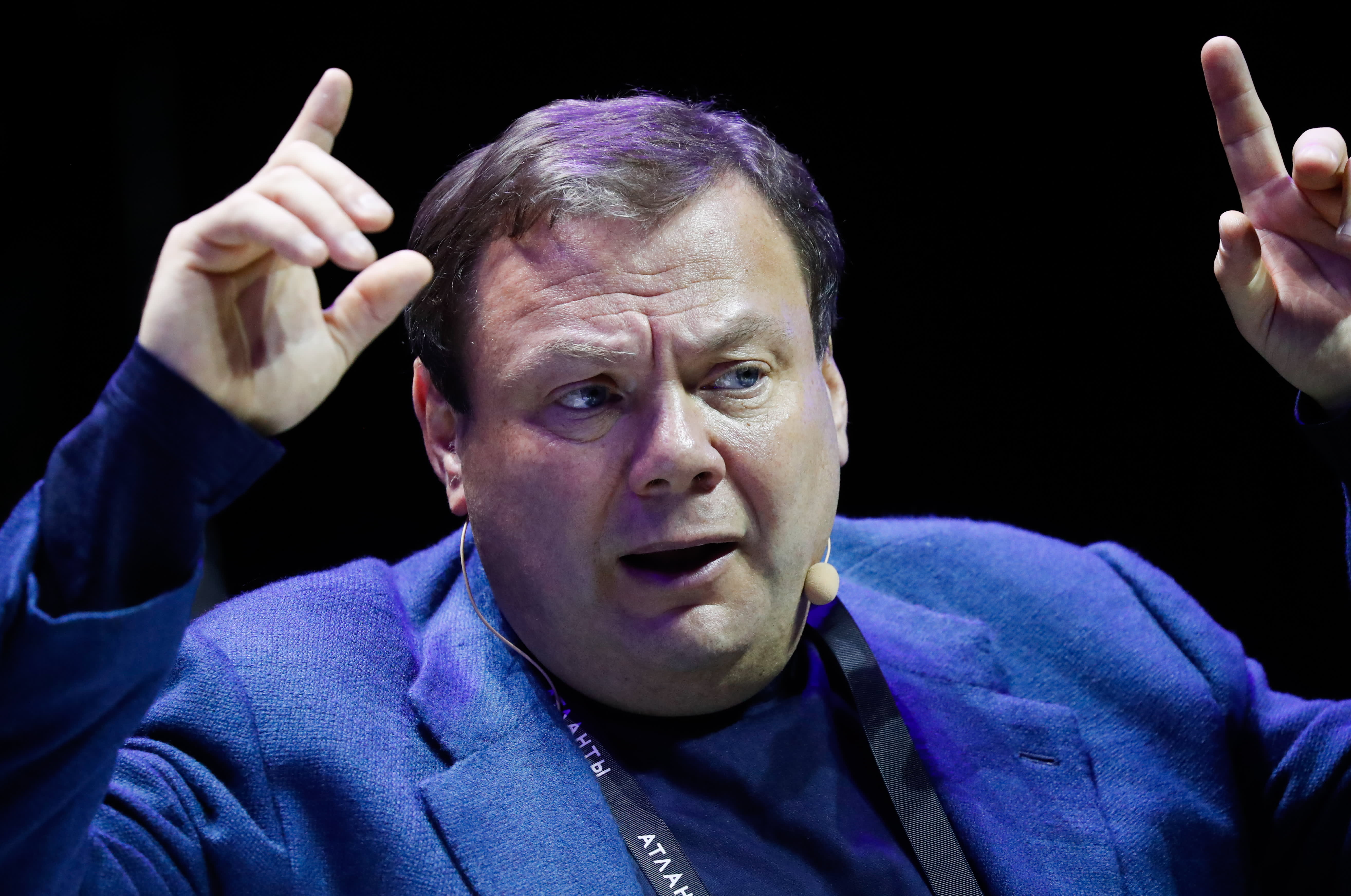As Europe and the U.S. ratchet up sanctions on the yachts and mansions of Russia’s oligarch elite, some of Vladimir Putin’s ultra-wealthy inner circle have begun speaking out against his invasion of Ukraine.
While none have directly referenced the Russian president, the rare sounds of dissent from his high-profile allies — many of whose fortunes have close ties to the Kremlin — signal the widening fissure among Russian voices.
Mikhail Fridman, founder of Russia’s largest private bank Alfa Bank and one of the country’s richest men, became the first Russian businessman to speak out against the conflict Friday, calling for an end to the “tragedy” and “bloodshed.”
In a letter to staff at his London-based private equity firm LetterOne, the Ukrainian native, whose parents still live in the country, said he was “convinced” that “war can never be the answer.”
“I am deeply attached to Ukrainian and Russian peoples and see the current conflict as a tragedy for them both,” he wrote in the letter first seen by the Financial Times.
“I do not make political statements,” he continued, “I am a businessman with responsibilities to my many thousands of employees in Russia and Ukraine. I am convinced however that war can never be the answer. This crisis will cost lives and damage two nations who have been brothers for hundreds of years.”
Fridman’s gamut of businesses include mobile carrier Veon, whose CEO Kaan Terzioglu told CNBC Monday that the war should be “stopped as soon as possible.”
“I really believe that this madness should stop as fast as possible,” he said, adding that the company is providing internet connectivity to Ukrainians fleeing the conflict.
Russia’s oligarchs face further sanctions
The European Union on Monday placed sanctions on Fridman personally along with his business partner Petr Aven, steel magnate Alexei Mordashov, and a number of other ultra-wealthy Russians.
Fridman responded Tuesday saying that he did not know whether there would be a backlash in Russia against the invasion but said that a blanket ban on Russians doing business in the world seemed unfair.
Mordashov, meanwhile, called the fighting a “tragedy of two fraternal peoples” that should be stopped but added that he should not be a target of international sanctions.
“I have absolutely nothing to do with the current geopolitical tensions. I don’t understand why sanctions have been imposed against us,” he said.
Separately, metals mogul Oleg Deripaska, who has been the subject of U.S. sanctions, wrote on Telegram last week: “Peace is very important! Negotiations must begin as soon as possible!”
Meanwhile, Oleg Tinkov, the billionaire founder of Tinkoff Bank who is currently undergoing cancer treatment, described the conflict “unthinkable and unacceptable,” calling for states to spend money on cancer research “not on war.”
Roman Abramovich, the billionaire owner of English soccer team Chelsea, has not spoken out publicly but he handed “stewardship” of the team to a charitable foundation. He was also reportedly involved in talks in Belarus on Monday after Ukraine asked for his help in reaching a “peaceful resolution.”
High profile dissenters
The comments from Russia’s wealthy elite join those of other high profile figures, including actress Liya Akhedzhakova and Nobel Peace Prize laureate Dmitry Muratov, who have called for an end to hostilities.
And they are not insignificant. Few if any oligarchs have spoken out against Putin in the almost two decades since Mikhail Khodorkovsky, Russia’s then richest man, was imprisoned for funding opposition parties.
Still, they are but a handful among the wealth of Russian oligarchs who have remained silent, and many have questioned the sincerity of their motives as they face potential further sanctions.
Already, some of Russia’s ultra-rich have seen their net worth’s almost half, resulting in estimated combined losses of $83 billion so far this year, as the Russian economy remains in freefall.
Meantime, others have queried what influence if any they have on the powerful Russian leader, who has shown little sign of backing down despite defiance from within Ukraine and wide-reaching measures from its Western allies.
